Discover 9 hidden attractions, cool sights, and unusual things to do in McLean (United States). Don't miss out on these must-see attractions: Great Falls, CIA Museum, and Scott's Run Nature Preserve. Also, be sure to include Claude Moore Colonial Farm in your itinerary.
Below, you can find the list of the most amazing places you should visit in McLean (Virginia).
Table of Contents
Great Falls
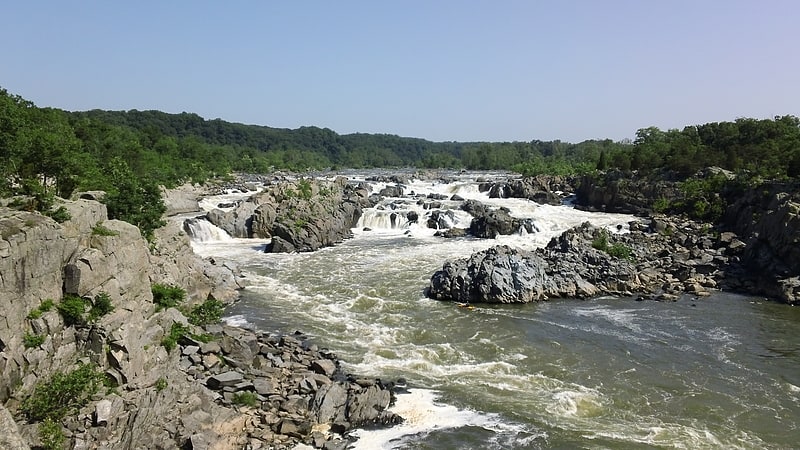
Dramatic whitewater rapids and waterfalls. Great Falls is a series of rapids and waterfalls on the Potomac River, 14 miles upstream from Washington, D.C., on the border of Montgomery County, Maryland and Fairfax County, Virginia. Great Falls Park, managed as part of George Washington Memorial Parkway, is on the southern banks in Virginia, and Chesapeake and Ohio Canal National Historical Park parkland is along the northern banks of the river in Maryland. Both are operated by the National Park Service. The Potomac and the falls themselves are legally entirely within Maryland, with the state and county boundaries following the south bank of the river.
Scenic views are offered on both the Maryland side and the Virginia side. The Billy Goat Trail on Bear Island, accessible from Maryland, offers scenic views of the Great Falls, as do vantage points on Olmsted Island (also accessible from Maryland). There are overlook points on the Virginia side.
The Great Falls area is popular for outdoor activities such as kayaking, whitewater rafting, rock climbing, and hiking.
Great Falls and Little Falls (about 5 miles downstream) are named in contradistinction to one another.[1]
Address: 9200 Old Dominion Dr, 22102 McLean (Potomac)
CIA Museum
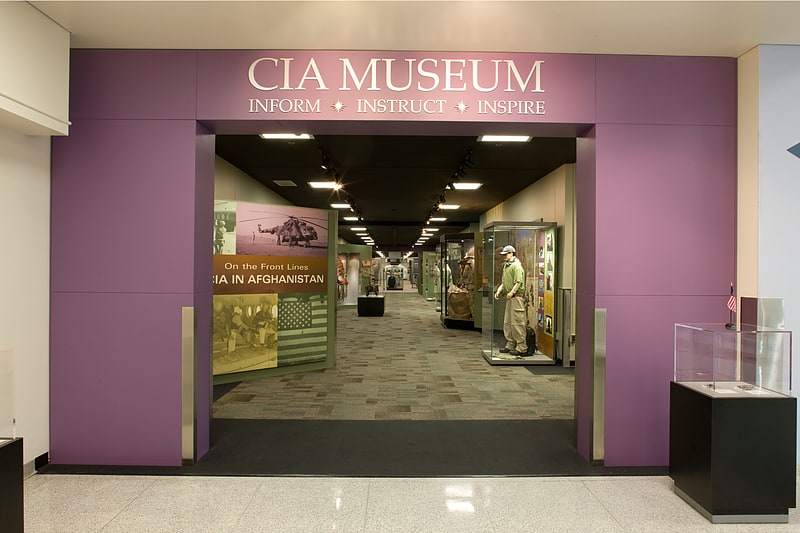
Museum. The CIA Museum, administered by the Center for the Study of Intelligence, is a national archive for the collection, preservation, documentation and exhibition of intelligence artifacts, culture, and history. The collection, which currently numbers 3,500 items, consists of artifacts that have been officially declassified, however since the museum is on the compound of the George Bush Center for Intelligence it is not accessible to the public. Since the museum cannot be visited by the public, the CIA Museum has partnerships with Presidential Libraries and other major museums and institutions to develop public exhibitions dedicated to understanding the craft of intelligence and its role in the broader American experience. The CIA Museum has counterparts at other agencies in the United States Intelligence Community. The National Cryptologic Museum, which is open to the public in Annapolis Junction, Maryland, is the NSA counterpart to the CIA Museum and focuses on cryptology as opposed to human intelligence. On the other hand, the DIA Museum is not public and is housed at its headquarters and focuses on the history of military intelligence and DIA's role. The FBI Museum housed at its headquarters is also off-limits to the public and is focused on its history as a federal law enforcement, counterintelligence, and counter-terrorism organization.[2]
Address: 1000 Colonial Farm Rd, McLean (McLean)
Scott's Run Nature Preserve
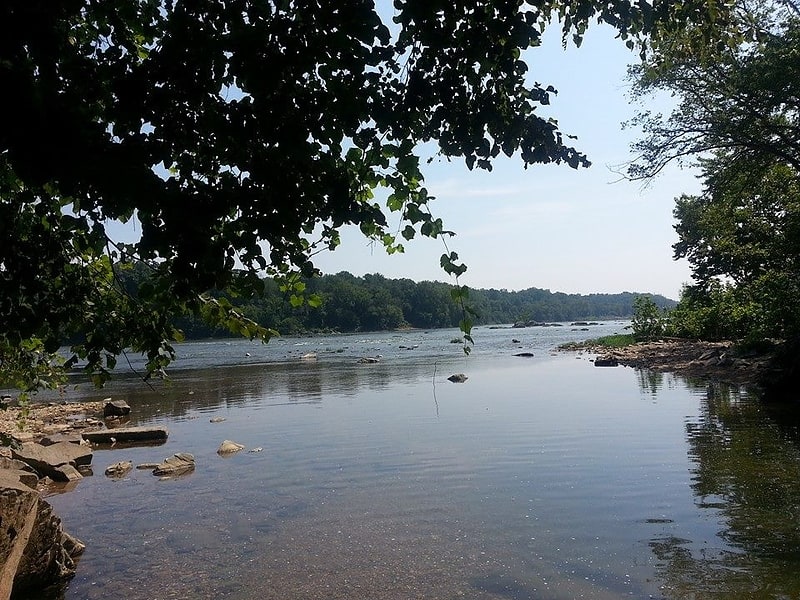
Nature preserve in McLean, Virginia. Scott's Run Nature Preserve is a nature preserve in Fairfax County, Virginia, United States. Located in McLean, it is bordered by Virginia State Route 193 to its south, Interstate 495 to its east and the Potomac River to its north. It encompasses 336 acres of woodland with its namesake, Scott's Run, flowing through its west side. Scott's Run originates in nearby Tysons Corner and enters the Potomac on the northwest side of the preserve. The preserve is noted for including eastern hemlocks among its plant life, which are rare for the area. It is a popular destination for recreation and hiking and is operated by the Fairfax County Park Authority.[3]
Address: 7400 Georgetown Pike, 22102-2142 McLean (McLean)
Claude Moore Colonial Farm
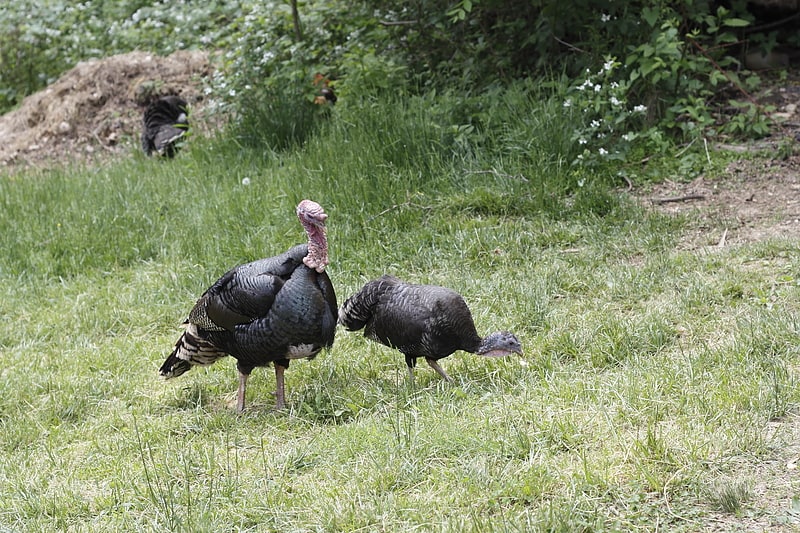
Park in McLean, Virginia. Claude Moore Colonial Farm, originally Turkey Run Farm, was a U.S. park in Virginia re-creating and re-enacting life on a tenant farm circa 1771. The park closed permanently on December 21, 2018. The National Park Service was subsequently said to be in the process of planning the future of the park and its facilities
The Friends of Claude Moore Colonial Farm at Turkey Run Inc. a privately funded foundation, paid for all activities on the Farm, while the land it occupied was owned by the National Park Service. It received only certain maintenance services from the Park Service. The Farm was located in McLean, Virginia, a suburb of Washington, D.C. next to the George Bush Center for Intelligence and the Turner-Fairbank Highway Research Center.
The mission of Claude Moore Colonial Farm was to recreate the life of tenant farmers circa 1771. The majority of Virginians of that time period were tenant farmers who grew tobacco to pay their rent while growing food to eat. By contrast, Colonial Williamsburg mainly demonstrates the life of merchants, landowners, and other members of colonial Virginia's upper crust.[4]
Address: 6310 Georgetown Pike, 22101 McLean (McLean)
Salona
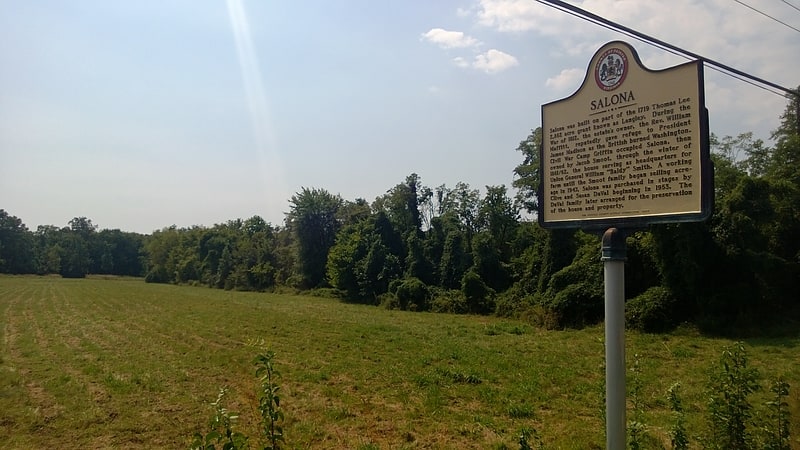
Salona, in McLean, Virginia, is a former plantation house on the National Register of Historic Places surrounded by land protected by two conservation easements. The Salona homestead and grounds comprise 7.8 acres within the 52.4-acre site, and are protected by a 1971 easement held by the Fairfax Board of Supervisors. A much newer conservation easement held by the Northern Virginia Conservation Trust added an additional 41 acres, of which 10 acres will be placed in active recreational use, and the rest used for passive recreation, such as trails.[5]
Holy Transfiguration Melkite Greek-Catholic Church
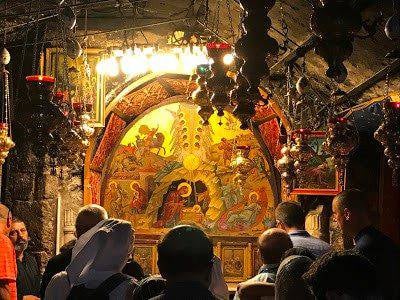
Church
Address: 8501 Lewinsville Rd, 22102-2210 McLean (McLean)
Mclean Farmers Market
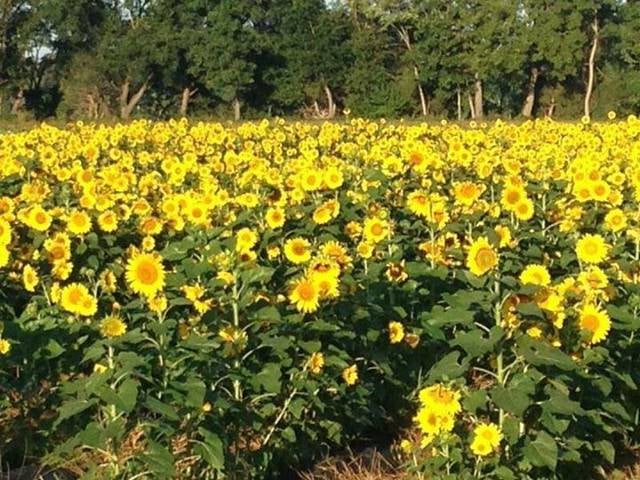
Farmer's market, Shopping, Market
Address: 1659 Chain Bridge Rd, 22101 McLean (McLean)
Langley Fork Historic District
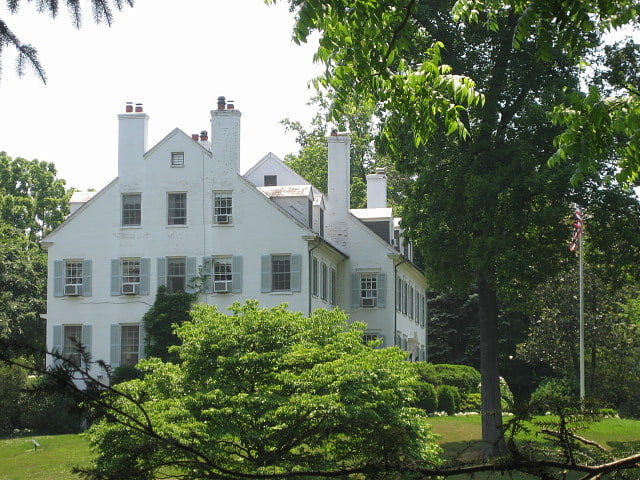
Langley Fork Historic District is a national historic district located at Langley, Fairfax County, Virginia. It encompasses 12 contributing buildings. They include Hickory Hill, the Langley Ordinary, the Langley Toll House, Gunnell's Chapel, the Langley Friends meeting house, a day school in an old church formerly converted to a residence, and an Amoco service station dated to 1932.
It was listed on the National Register of Historic Places in 1982.[6]
Hickory Hill
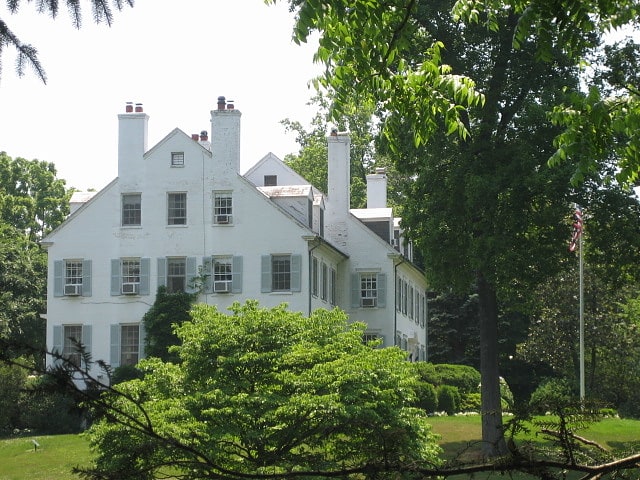
Historical landmark in McLean, Virginia. Hickory Hill is a large brick house in McLean, Virginia, in the United States, which was owned for many years by members of the Kennedy family, the American political family that has long been prominent in American politics, public service, entertainment, and business.
Although the date when the house was constructed cannot be determined precisely, architectural historians, noting that an 1865 ordinance map of the area does not indicate the house, date it to shortly after the American Civil War, circa 1870.
The 5.6-acre (2.3 ha) property was part of an 88-acre (36 ha) tract acquired in 1846 by George Walter, who built several houses in the area prior to his death in 1890. The core of the house itself originally featured an encircling verandah, topped by a mansard roof. In 1931, the house was extensively remodeled largely to its current configuration. It was expanded again in 1964 with a north wing addition.
In 1920, James Patrick "Pat" Speer, a Washington D.C. dentist, lived at Hickory Hill, along with his wife Susan Virginia "Jenny" Morgan Speer. At that time, they lived in the house with their five younger children, as their eldest daughter had already married and moved away. Pat Speer practiced dentistry in Washington D.C. in the same building where Clara Barton had previously conducted her work with U.S. Civil War veterans and their families.
In July 1941, Hickory Hill became the home of newly appointed United States Supreme Court Associate Justice Robert H. Jackson and his wife, Irene, who, in 1955, after his death, sold Hickory Hill to United States Senator John F. Kennedy (D−Massachusetts) and his wife, Jacqueline. After the 1956 Democratic National Convention, the house was sold to John's brother Robert F. Kennedy and his wife, Ethel, who had a growing family (eventually eleven children). While he lived at Hickory Hill, Robert Kennedy became Attorney General of the United States in 1961; a United States Senator in 1965; and a presidential candidate in 1968.
Hickory Hill was placed on the market in 2004 by the Kennedy family at an asking price of $25 million and then subsequently withdrawn in November 2008. After it was sold in December 2009 to a Virginia businessman for $8.25 million, the house underwent a major renovation, completed in the fall of 2013.
The house, along with eleven other historic structures, was designated as a contributing property to the Langley Fork Historic District by the National Park Service's National Register of Historic Places on October 19, 1982.[7]